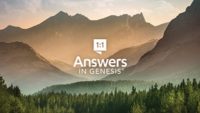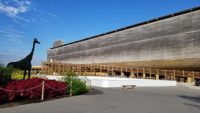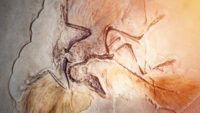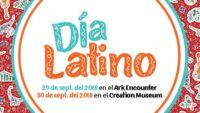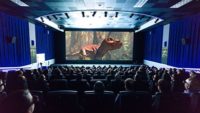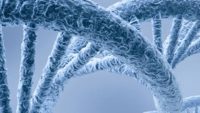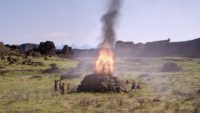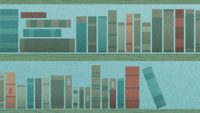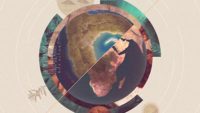By Ken Ham We’re excited to see Answers in Genesis expanding, with sister ministries around the globe. (We now have offices in the UK, Canada, Australia/New Zealand, Latin America, and Peru!) Recently, the director of AiG–Canada, Calvin Smith, and his family ventured to Kentucky from Ingersoll, Ontario. Cal provided various AiG staff an update on the growing ministry to the north and brought some of his family members from Canada to experience our two world-class attractions in Northern Kentucky. Having just established his office, Cal has organized his staff and volunteers to do great things in a very short time, [More]
Koko, the so-called “talking ape,” died in her sleep on June 19, 2018, prompting a resurgence of discussion about her ability to use human language. As a result of her death there appears to be “credulous repetition of Koko’s mythical prowess in sign language…everywhere.”1 Research into animal communication is important because one major problem evolutionists face is explaining the origin of h… More… …read more Source: icr.org
By Sarah Chaffee On this episode of ID the Future, Father Michael Chaberek, author of the books Catholicism and Evolution and Aquinas and Evolution, explains why the theory of intelligent design meshes well with the philosophy of Thomas Aquinas. In his conversation with host Jay Richards, Chaberek, creator of the site Aquinas.Design, notes that some Thomists complain about ID, but he argues that they misunderstand what ID is and isn’t. As for criticism that ID is a “God of the Gaps” argument, Chaberek urges Thomists to consider where that complaint leads: For Catholics, and Christians generally, that complaint proves way [More]
By Ken Ham Movie nights are a popular way to spend time with family and friends. But it can be hard to find a movie that doesn’t contain perverse content or subtle teaching in a secular worldview. You may spend more time trying to find a movie or show to watch than actually watching the movie! Well, if this is the case for you, I encourage you to consider a subscription to So if you have a movie night coming up with family or friends, try PureFlix.com—and consider one of the Answers in Genesis titles currently available, such as the [More]
By Ken Ham When you think of Kentucky, ice skating is probably not something that comes to mind—especially in September! But you can go “ice” skating today at the Ark Encounter. We’ve recently opened a Glice® rink—the largest in North America—at the Ark. Glice® is a synthetic ice that acts just like real ice, allowing you to skate regardless of the weather. Everything you need is provided for you and you can skate for as long as you want, during one continuous session, for just $8. For children who are just learning to skate, a special skating prop is available [More]
By Dr. David Menton Did dinosaurs evolve into birds? Are the birds we see at our window actually feathered dinosaurs? For many evolutionists these claims are unassailable facts. …read more Source: AIG Daily
Could feathered dinosaurs have existed? Logically distinct question: did dinosaurs evolve into birds? Read More
By Ken Ham Did you know that there are 52.6 million Spanish speakers living in the United States? That means there are more Spanish speakers in the US than in any other nation besides Mexico. And we want to reach these precious people with the message of the gospel in their own language! That’s why we host Día Latino every year at both the Creation Museum and the Ark Encounter. This year, the event is taking place September 29, 2018, at the Ark Encounter and September 30, 2018, at the Creation Museum in Northern …read more Source: Ken Ham AIG [More]
Massive coastal sand dunes were most likely formed both before the post Flood Ice Age, and immediately after the post Flood Ice Age. Read More
Responding to someone who wonders why we bother writing certain articles. Read More
Ever seen sedimentary rock layers in cliffs? They were deposited in rapid water currents, sideways Read More
By Ken Ham We recently opened our new 4D Special Effects Theater at the Creation Museum. This state-of-the-art theater features stunning 3D (using special infrared technology) and a variety of special effects (seats vibrate and poke, special lighting, air effects, and more for the added “fourth dimension”) to surprise and delight guests as they experience creation week brought to life during the 22-minute show In Six Days. And we’re receiving extremely positive feedback from guests who’ve experienced this remarkable theater. Here are just a few comments from guests who saw In Six Days the day it was released: <!– –> [More]
Have you ever thought about what sort of things would have been seen straight after the Flood? Could anything from the pre-Flood world have survived? Read More
When Ron Neller studied how water affected the landscapes all over the world, he was on his way to becoming a biblical creationist and did not know it. Read More
By Sarah Chaffee Today’s episode of ID the Future from the vault continues a discussion of why the idea of land-to-sea whale evolution doesn’t wash. CSC Senior Fellow and evolutionary biologist Richard Sternberg’s focuses on material from the documentary Living Waters: Intelligent Design in the Oceans of the Earth, and explains why neither natural selection nor neutral drift cannot explain the transition from a land mammal to a fully aquatic whale. Standard evolutionary models would either require implausibly large breeding populations (greater than that of any mammal species) or a waiting period far longer than the given 8-9 million years. [More]
Do you enjoy listening to podcasts during your commute, workout, or morning devotions? Do you like meditating on short passages of Scripture? Would you like an ICR expert to answer some of your most pressing science and Bible questions? We’re excited to announce two new podcast programs we’re adding to our website, iTunes, and Google Play. We now offer a total of three podcasts … More… …read more Source: icr.org
By Dr. Daniel A. Biddle What do young people believe are the best evidences of evolution? A behavioral scientist sought the answer so we could target our training. …read more Source: AIG Daily
By Jeffrey P. Tomkins Results from this study negate the concept of the 98.5% DNA similarity myth and highlight the extremely flawed and humanized nature of the panTro4 version of the chimpanzee genome. …read more Source: AIG Daily
By Ken Ham Our hard-working and very talented A/V and media crews are very excited to give you a sneak peek of our brand-new short film, New Beginning. This touching film looks at the Noah’s flood account from an unusual angle: the perspective of Shem’s wife. This short film follows the wife of one of Noah’s sons (she is never named in Scripture) as she writes down her memories of the pre-flood world, the ark voyage, and the new world after the flood for her children. I believe you’ll find this film brings the flood account to life in a [More]
By Ken Ham Terms like racism, prejudice, a black race, and a white race are common in news items these days. How should God’s people respond to matters of “race”? …read more Source: AIG Daily
By Harry F. Sanders, III Dr. Danny Faulkner’s recent Answers Research Journal article makes a number of important points about redshifts, quasars, and an expanding universe. …read more Source: AIG Daily
By Ken Ham It’s always a good idea to read, but today gives you a great excuse to sit down with a good book—it’s National Read a Book Day in America! Not sure what to read? Of course, the most important book is the Bible, and we should be reading it every day anyway. But did you know Answers in Genesis has dozens of titles that have been released as print and digital books? You can start reading within minutes! These books won’t just entertain you. They will equip you to stand boldly on the authority of God’s Word and [More]
By Ken Ham With the new school year beginning, the Kentucky branch of American Atheists has sent letters to schools in a few counties highlighting “a number of issues” related to “religious freedom and the rights of students.” In the letter, it’s specifically claimed that field trips to the Ark Encounter or Creation Museum in the state are “unconstitutional violations of the Establishment Clause of the First Amendment.” But is this really true? As we wrote back in 2016 when the Ark first opened, there is absolutely nothing unconstitutional about a public school visiting either of our world-class attractions. (We [More]
By Ken Ham If creationists are unwilling to change their basic beliefs, does that mean they’re not true scientists? …read more Source: AIG Daily
By Ken Ham According to a recent article, in 2017 the Humanist Society of Scotland married more couples than the Church of Scotland. This increase in secular, humanist weddings is credited for the sharp rise in the religion of secularism, particularly among younger generations. Reportedly, 59% of Scots identify as “non-religious” (though no one is truly non-religious—we all have a religion, and atheism, humanism, and secularism are all religions), with nearly seven in ten of the so-called “non-religious” being under the age of 44. Not only is the number of secularists rising, the number of weddings is declining. In 1961 [More]
By Ernie Baker Addictions, trauma, depression . . . people who come to Christ often face tough problems. Whose job is it to reach out to them? The Bible must be our guide. …read more Source: AIG Daily
By Sarah Chaffee On this episode of ID the Future, Andrew McDiarmid reads an excerpt from a speech prepared by philosopher, mathematician, and trailblazing design theorist William Dembski for the launch of the Walter Bradley Center for Natural and Artificial Intelligence. Dr. Dembski asks whether we need worry about an AI takeover, and says no, there’s no evidence that artificial intelligence (AI) could reach that level, or achieve consciousness, and there’s mounting evidence from both philosophy and the field of artificial intelligence technology that it cannot and will not. “The real worry,” Dembski says, “isn’t that we’ll raise machines to [More]




















